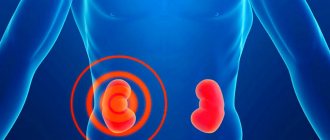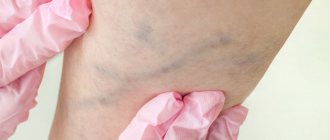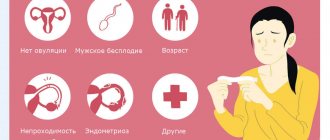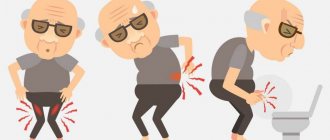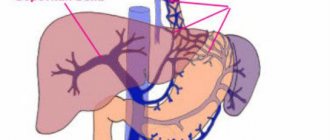Inflammation of the prostate today is a leader in the group of male diseases that are predominantly sexually transmitted. Its complications threaten infertility, decreased libido, and impotence.
Symptoms of prostatitis are not just pain, urination disorders, and inflammation of the spermatic cord. The most dangerous consequence of advanced inflammation can be cancerous degeneration of the prostate gland. Whereas a timely diagnosed pathological process is easily stopped.
Causes of inflammation
The risk of developing prostate inflammation increases due to various factors predisposing to the disease:
- Hypothermia, one-time or associated with the nature of work in the open air.
- A sedentary lifestyle leads to disruption of the functioning of the digestive system.
- Chronic somatic diseases (diabetes mellitus, hypertension).
- Foci of focal, perifocal infection (rhinitis, tonsillitis, stomatitis, gastritis).
- Persistent UGI (chlamydia, trichomoniasis, herpes virus).
- Stress, insomnia, chronic fatigue syndrome.
- Decreased immunity due to illness, surgery, emotional stress.
- Bad habits leading to the development of intoxication: alcohol, smoking, strong coffee.
- Occupational injuries to the perineum of car drivers, athletes, workers in hazardous industries.
- Promiscuous sex life, interrupted sexual intercourse, devoid of sensuality intercourse with incomplete ejaculation, prolonged absence of intimacy (low need for sperm leads to stagnation in the gland).
- Venereal diseases.
Despite a fairly large number of provocative moments, the essence of prostatitis is the occurrence of stagnation inside the organ against the background of impaired blood circulation and lymph outflow.
Additional prostate examination techniques
These include:
- general analysis for STDs - allows you to identify sexually transmitted infections;
- TRUS is an ultrasound examination that allows you to identify foci of inflammation, adenoma or oncology using a rectal sensor;
- computed tomography - allows you to get a complete picture of the condition of the pelvic organs;
- extended spermogram with MAR test and Kruger study - the analysis is prescribed to men who have problems with reproductive function: it can be used to determine the quality and quantity of sperm, as well as whether prostatitis has affected the ability to fertilize.
Additional examination is necessary if diagnosis is difficult or due to the presence of symptoms of the disease that are not characteristic of prostatitis. You also cannot do without it if the symptoms arise against the background of a malignant tumor in the pelvic organs. An auxiliary method is vital to obtain a complete picture of a man’s health status and in case of complications.
Classification
In modern urology there is no uniform classification of the disease. However, practicing doctors prefer this option for classifying the inflammatory process in the prostate:
- According to the course of the disease:
- Acute prostatitis. It accounts for more than 50% of cases of the disease in people no older than 30-35 years.
- Chronic option. It is considered a non-age category. It does not manifest itself for a long time; the impetus for its development is a cold or infection.
- For the reason that caused the pathology:
- Bacterial inflammation of the prostate gland, predominates in men under 40 years of age, occurs against the background of ultrasonography, and does not extend beyond the boundaries of the organ.
- Non-bacterial pathological changes in the gland, predominantly chronic.
- Viral inflammation of the prostate is characterized by an acute course that affects the entire genital area.
- Fibrous prostatitis is characterized by rapid irreversible growth of the gland and requires radical intervention. Clinically resembles prostate adenoma.
- Calculous inflammation of the prostate gland occurs due to the formation of stones inside the prostate. Considered as a harbinger of cancer.
- Congestive prostatitis, the result of a sedentary lifestyle, is diagnosed in every second patient.
History taking
Only a doctor can give a referral for prostate tests after a preliminary consultation with the patient and collection of anamnesis. The urologist at Polyclinic +1 will ask the patient about the presence of chronic diseases, clarify complaints, look at tests for the previous period and their results, if the visit is not primary.
At this stage, palpation and massage of the prostate are performed - they are indicated in the absence of symptoms of inflammation, if the doctor suspects the onset of the chronic stage of the disease. The condition of the gland can be judged by a man’s reaction to a massage, the presence of seals, and possible changes in size.
Important! If the condition is acute, massage cannot be done - severe pain occurs! The second reason is that massage can cause microbes to enter the blood, which can lead to sepsis.
Signs of the disease
If a man discovers at least two of the following symptoms of prostatitis, he should immediately contact a qualified specialist:
- Disorder of urination with the occurrence of an intermittent, weak stream of urine, unusually short, causing splashing, difficulty and pain before urination. Frequent urge to empty the bladder occurs mainly at night.
- Soreness, which is localized in the lower abdomen, radiates to the scrotum, perineum, and rectum.
- Sexual dysfunction.
- Problems with ejaculation, changes in sperm (consistency, quantity).
What can be done?
To avoid the development of a chronic form of the disease and possible complications, it is necessary to undergo a preventive examination by a urologist twice a year. It is important to be responsible when choosing a clinic and a doctor. The asymptomatic course of the disease requires a careful examination and a series of studies. All this is possible in IMMA medical clinics. The main advantages of the centers: new high-precision equipment, the possibility of all types of laboratory tests, highly qualified specialists, attentive attitude to each patient. And the convenient location of the centers and high level of service will make a visit to the doctor comfortable.
Regular visits to the doctor will not take much time, but will help maintain men's health for many years.
Acute prostatitis
The disease begins with a sharp rise in temperature (up to 40 degrees), painful headache, and fever. The symptoms that appear are accompanied by pain in the groin, perineum, back, discharge from the urethra, frequent urination and a constant urge to urinate.
Emptying the bladder occurs with a delay and a burning sensation. The urine itself becomes cloudy and may contain blood. Irritability and fatigue occur.
The outcome of acute prostatitis can be complete resolution of the process (if treatment is started in a timely manner). Since changes occur in many pelvic organs, they cannot be left to chance, otherwise the corresponding complications will arise:
- Vesiculitis is an inflammation of the seminal vesicles, the cause of the appearance of pus in the sperm, which not only reduces the quality of the ejaculate, but leads to loss of reproductive function.
- Colliculitis - inflammatory changes in the seminal tubercle become the reason for the development of severe pain during sex, interruption of orgasm, and impotence of a psychological nature.
- The formation of an abscess in the body of the prostate, its rupture, and purulent damage to the rectum leads to an exacerbation of symptoms, severe intoxication of the body, even death.
- Stagnation in the tissues of the prostate leads to changes in their structure, disruption of innervation, blood supply, both to the gland itself and to organs located nearby, with disruption of their functions. The erection becomes insufficient for full sexual intercourse, premature ejaculation and prolonged sexual intercourse without orgasm are observed.
- Cicatricial changes in the gland and spermatic cord lead to infertility, a decrease in the quality of sperm, and sperm motility. Narrowing of the urethra interferes with the normal process of urination; obstruction of the bladder can cause acute urinary retention, requiring emergency surgical care.
Chronic prostatitis
The main feature of the disease is the vagueness of clinical symptoms with a long, persistent course of the process. More often, the chronic form occurs independently, as a primary pathology against the background of stagnation of blood in the vessels (prostatosis), abacterial prostatitis.
The main symptoms of chronic prostatitis are:
- fever;
- pain occurs in the scrotum, perineum, anus, back;
- urinary disturbance;
- mucous or mucopurulent discharge from the rectum, urethra, even in the absence of urination or defecation;
- erectile dysfunction, painful ejaculation, interrupted sexual intercourse, prolonged intercourse without a feeling of satisfaction.
Inaction and improper treatment of chronic prostatitis can cause complications:
- Infertility is the result of chronic inflammation in the spermatic cord, vesicles, testicles, and their appendages.
- Cystitis, pyelonephritis (other diseases of the genitourinary system) are a consequence of hematogenous and mechanical spread of microbes.
- Sepsis.
- Persistent decrease in immunity.
- Untreated prostatitis can cause cancer in 35–40% of cases.
Consequences
Lack of proper treatment or self-medication can result in serious health problems. The spread of infection leads to the development of such negative consequences as:
- cystitis;
- pyelonephritis;
- vesiculitis;
- colliculitis and urethritis;
- epididymitis;
- prostate sclerosis.
Against the background of such complications, erectile and psychological disorders occur. In severe cases, the disease can progress to the stage of chronic calculous prostatitis, causing an abscess and other life-threatening complications. Frequent relapses often cause the development of male infertility, adenoma and even prostate cancer.
Diagnostics
The clinical picture of the disease is typical, so the diagnosis is not difficult. It is performed by a urologist based on medical history, examination of the patient, laboratory minimum using the most modern medical devices:
- Rectal examination of the gland, taking secretions for examination (culture with determination of sensitivity to antibiotics).
- UAC, UAM, bacterial culture of urine.
- Smear test for STDs, UGI examination.
- Daily monitoring of urination rhythm, measurement of urination rate (uroflowmetry).
- For differential diagnosis, ultrasound or TRUS is performed.
- If it is necessary to exclude oncology, a biopsy is taken, urography is performed, and PSA is determined - prostate specific antigen.
- To diagnose infertility, a spermogram is prescribed - an analysis of ejaculate to determine the fertility of a man.
Based on the results of the patient’s examination, an individual scheme for complex treatment of prostatitis is drawn up. When prescribing drugs, the form of the pathology and the presence of concomitant diseases are taken into account. The decision about where to conduct therapy (inpatient or outpatient) is made by the doctor. The course of treatment is carried out with careful laboratory monitoring of results.
One of the most modern centers for the treatment of prostatitis are the clinics of the Mother and Child Group of Companies. Since the problem of infertility is closely related to inflammatory urological diseases, medical professionals pay great attention to this problem.
In the Mother and Child clinics, each patient has the opportunity to undergo a full cycle of special examination, receive psychological support, be treated with the latest generation drugs used in this area, and become familiar with the latest methods for treating prostate inflammation. Not least important in the complex therapy of prostatitis is the issue of effective rehabilitation of patients, clinical observation, and prevention.
Blood analysis
A general blood test will reveal the inflammatory process by deciphering the ESR. If the erythrocyte sedimentation rate has increased, these are typical signs of an inflammatory process. Sometimes inflammation is triggered by the development of allergies.
A popular blood test for prostate disease is PSA. With its help, you can identify a specific antigen, which allows you to determine not only prostatitis, but also prostate cancer. In our clinic we do two types of tests - PSA total and free. The patient needs to do both tests, since the ratio of their results is important for diagnosis.
Treatment of acute prostatitis
Acute prostatitis requires bed rest, a special, salt-free diet, and sexual rest.
Methods of course treatment:
- The most effective treatment for prostatitis is etiotropic therapy. If the basis of prostatitis is an infection, a course of antimicrobial agents is a priority, which relieves the manifestations of inflammation.
- Pain syndrome is relieved with analgesics, antispasmodics, rectal suppositories, microenemas with warm solutions of painkillers. NSAIDs may be used.
- Immunostimulants, immunomodulators, enzymes, vitamin complexes, and a combination of microelements have proven their effectiveness.
- Physiotherapeutic methods are possible only in the subacute stage of the disease. They improve microcirculation and increase immunity: UHF, microwave, electrophoresis, laser, magnetic therapy.
- Massage is another effective method of influencing the prostate. It opens the ducts, normalizes blood circulation in the scrotum and pelvis.
- Acute renal filtrate retention can be corrected by catheterization and trocar cystostomy.
- The purulent process involves surgical intervention.
- Psychologist consultations.
Contraindications
General contraindications for the treatment of prostatitis are the same as for other diseases:
- very high temperature;
- presence of an infectious disease;
- exacerbation of a chronic disease;
- severe pelvic injury;
- postoperative period, etc.
Each of the methods of treating prostatitis has its own contraindications, so contacting a highly qualified, experienced urologist is a prerequisite for the complete restoration of the functions of the urinary system and men's health.
Treatment of chronic prostatitis
With a long-term, course (at least a month) effect on the prostate, there is no 100% guarantee of cure. Priority goes to herbal medicines, immunocorrection, changing household habits:
- Herbal preparations (for example, Licoprofit) are widely used in urological practice. They are able to accumulate at the site of the most active pathological process, protect cells from oxidation, remove free radicals, and prevent the proliferation of glandular tissue.
- Antibacterial therapy is selected individually, based on the sensitivity of microbes to drugs.
- Drugs that enhance immunity not only help to cope with prostatitis, they also correct the negative effects of antibiotics that disrupt the function of the immune system.
- The pain syndrome is relieved by the administration of alpha-blockers and muscle relaxants.
- Prostate massage allows you to mechanically remove the “extra” secretion of the gland through the urethra, improve blood circulation, and minimize congestion.
- Physiotherapy: laser, magnet, ultrasound, iontophoresis, warm sitz baths or microenemas with herbs.
- In severe cases, intravenous fluids with diuretics are indicated. This stimulates abundant urine production, prevents symptoms of intoxication, the development of ascending cystitis, and pyelonephritis.
- For constipation, herbal laxatives are used.
- The urologist and psychologist, together with the patient, develop an individual long-term program of daily routine, necessary rest, diet, dosed physical activity, and sexual activity.
- If the chronic process is resistant to therapy and the outflow of urine is blocked, surgical intervention is prescribed: removal of all affected tissue (transurethral resection of the prostate) or complete removal of the gland with surrounding tissues (prostatectomy). Practiced in exceptional cases, it is fraught with impotence and urinary incontinence. Young people do not undergo surgery because it can cause infertility.
Prevention
To prevent the occurrence of a disease that is unpleasant for men, you need to eliminate provoking factors and follow simple rules:
- Lead a healthy lifestyle, give up bad habits.
- Don't get too cold.
- Drink at least 1.5-2 liters of water per day.
- Strengthen your immune system, walk a lot, toughen up.
- Engage in physical education and sports, visit fitness clubs.
- Avoid stressful situations.
- Practice regular sex life with a regular partner.
- See a urologist regularly.
You can make an appointment at the Mother and Child clinic by calling the call center +7 800 700 700 or using the feedback form on the website.
Why should you contact Polyclinic +1?
The urologists at our clinic not only have the appropriate qualifications, but also have more than 20 years of experience working in the medical center. Our clinic has all the necessary latest equipment that allows us to perform a wide range of examinations of men and guarantee the accuracy of the results obtained.
Contacting our clinic is profitable and convenient for the following reasons:
- speed of obtaining results - depending on the selected analysis, some results can be obtained after half an hour;
- anonymity of the examination - we strictly observe medical confidentiality;
- convenient location of the clinic - 5 minutes walk from four metro stations;
- careful selection by the doctor of the necessary set of examinations - nothing superfluous, only what is needed for an accurate diagnosis;
- affordable affordable prices for doctor’s consultations and tests.
When you contact Polyclinic +1, you can be sure that the doctor will select the best treatment option that will allow you to get rid of the disease in the shortest possible time. Come, we are always happy to help!
